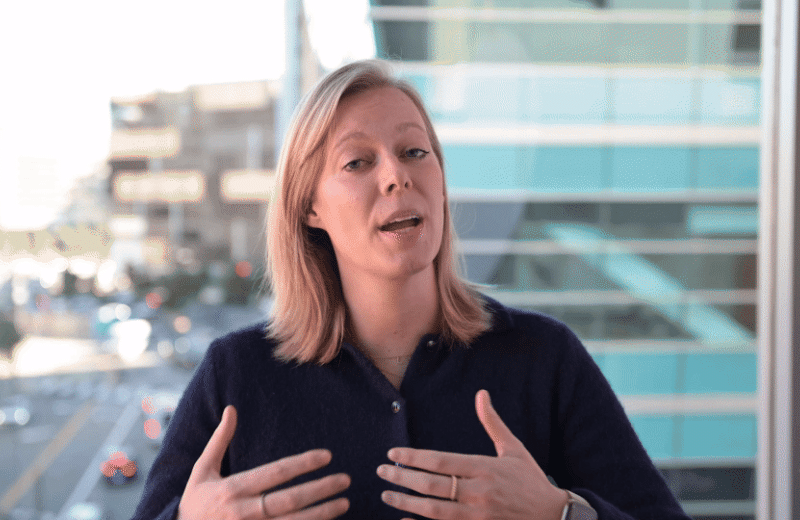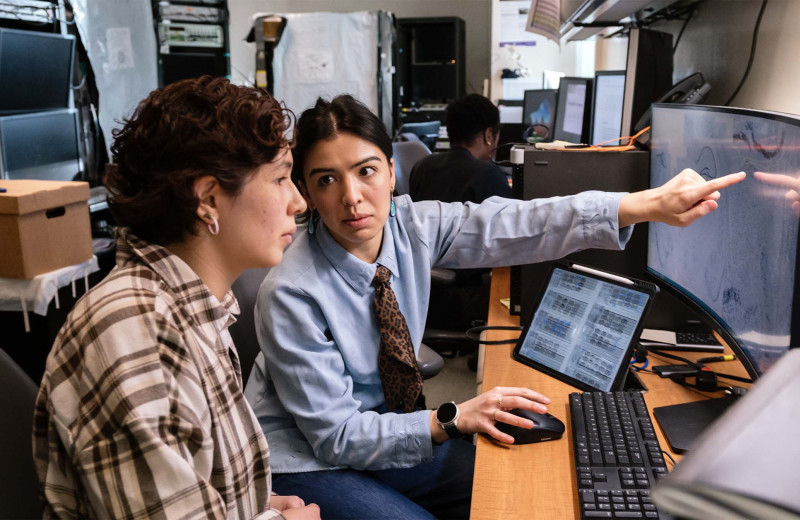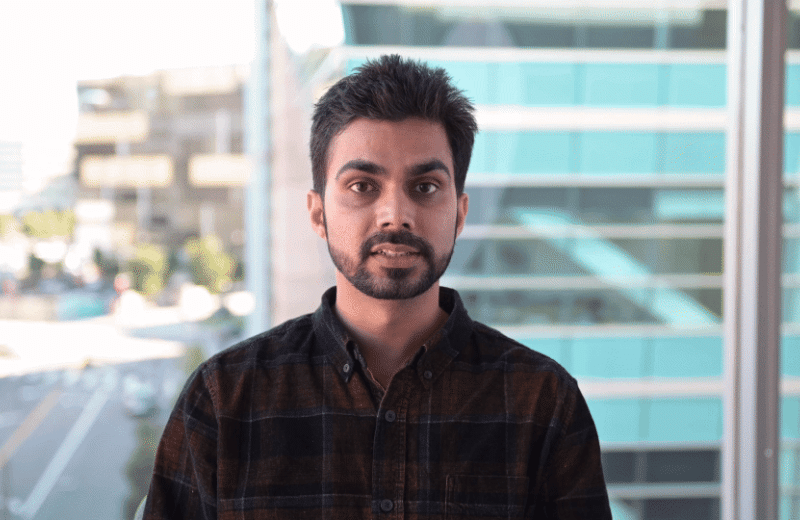Gladstone NOW: The Campaign Join Us on the Journey✕

Kristoffer Leon completed his undergraduate education at Emory University, Georgia, and is currently an MD/PhD student studying Zika virus in Melanie Ott’s lab.
What brought you to Gladstone?
Melanie Ott. I was looking for a mentor who understood the training path of an MD/PhD, a virologist who worked on something other than HIV, and I really enjoyed meeting her!
What do you like about Gladstone?
The commitment to trying to solve human health problems. As an MD/PhD, I have a particular bent toward medically relevant questions and toward research that leads to therapies. I found pretty early on in my career that I was motivated by trying to find solutions for tangible clinical problems.
Were you interested in science as a child?
As a kid I was obsessed with Jurassic Park and dinosaurs. There was a really fascinating natural history museum in Atlanta called Fernbank that had some dinosaur fossils and reconstructed skeletons. The exhibit I remember most vividly was in the center of the museum. It was called Giants of the Mesozoic and featured scale replicas of several different dinosaurs. We went several times a year, especially when they had special teaching days for children.
Why did you decide to go to graduate school?
I started doing undergraduate research very early on in college, and I found it really interesting. I initially worked with monarch butterflies, participated in a summer research program at UCSF, and then switched to work on Schistosomiasis (a disease caused by a parasitic worm). It was around the time I switched to working on human pathogens that I also began volunteering at a tropical medicine clinic in Atlanta. The clinic doubled as a Hansen’s Disease (leprosy) clinic, which was an incredible opportunity to work with patients afflicted by a treatable but stigmatizing disease. Current standard of care involves years of antibiotic therapy with significant side effects. This standard of care hasn’t improved since the 1980s. When talking to the physicians I worked with, I realized that there are many pathogens for which we have limited or no therapeutic options. This realization motivated me to pursue a career where I could work to solve that problem.
Can you describe your current research project?
I work on Zika virus, which was responsible for the outbreak of microcephaly—a pronounced reduction of brain and head size in newborns—in Brazil in 2015–2016. In particular, I study the interactions between Zika and a molecular pathway required for the proper development of brain cells. Currently, there are no therapeutic options for Zika virus or microcephaly—no vaccine and no drug. A lot of my work is done with human induced pluripotent stem cells that have been differentiated into neuron precursors, the type of cells that Zika targets when it infects a fetus. All of this work aims to better understand how Zika causes microcephaly and, hopefully, to design therapies in the future.
What or who influenced your decision to work in science?
I’ve had so many great mentors, from my high school chemistry teacher to a clinical pathologist I worked with, to my organic chemistry teacher, and all the professors I have worked under! I took part in several programs promoting diversity in the sciences at Emory University, and a lot of these events influenced my decision to pursue a scientific career. That, coupled with my interest in infectious diseases and my experiences in clinics and hospitals, influenced my decision to ultimately pursue an MD/PhD.
What do you do when you are not working?
I’m either outside or eating or, ideally, both. I do a lot of cycling in the summer, skiing in the winter, and I try to sneak in wilderness backpacking trips here and there. I try to travel internationally when I can. Since starting my program, I’ve been to Panama, Colombia, Mexico, Guatemala, Ireland, and Sweden.
Food-wise, I spend a lot of the time in the kitchen. In particular, I love to cook egregious quantities of meat. I’ve also picked up the trendy habit of trying to ferment foods (which I feel qualified to do since I have decent sterile technique). I’m also working on my baking skills, which I’ve tormented my lab mates with.
I also frequent a number of restaurants in the city, and I love the food culture in San Francisco. If I’m going to be paying this much rent, I’m going to make the most of the location. I keep a long list of places I’ve been to, and an even longer list of places I want to go.
If you could learn to do anything, what would it be?
I would love to learn how to fly airplanes. Oddly enough, I really enjoy being in airports and I’d love another excuse to travel.
What is your hidden/unique talent?
Being able to provide directions in San Francisco using restaurants and bars as landmarks.
Name one thing that not many people know about you.
I was an incredibly mediocre trombone player in middle school, much to my parents’ chagrin.
If you could meet any scientist from any point in time, who would it be and why?
I’d really like to meet Edward Jenner because I want to know what possessed him to start injecting people with cowpox.
Want to Join the Team?
Our people are our most important asset. We offer a wide array of career opportunities both in our administrative offices and in our labs.
Explore CareersMeet Gladstone: Alisa Dietl
Meet Gladstone: Alisa Dietl
Alisa Dietl brings her international training and clinical perspective to Gladstone, where she works to engineer more effective cancer immunotherapies for solid tumors.
Graduate Students and Postdocs Profile Cancer Pelka LabVoices of Outstanding Mentorship
Voices of Outstanding Mentorship
Three recipients of Gladstone’s Outstanding Mentoring Award share their personal approaches to mentorship and reflect how this passion has shaped their own growth as leaders.
Profile Roan Lab Graduate Students and PostdocsMeet Gladstone: Shyam Jinagal
Meet Gladstone: Shyam Jinagal
Shyam Jinagal explores how genetics, aging, and regeneration shape the heart—and how those insights could one day restore heart function after injury.
Graduate Students and Postdocs Profile Cardiovascular Disease Srivastava Lab



